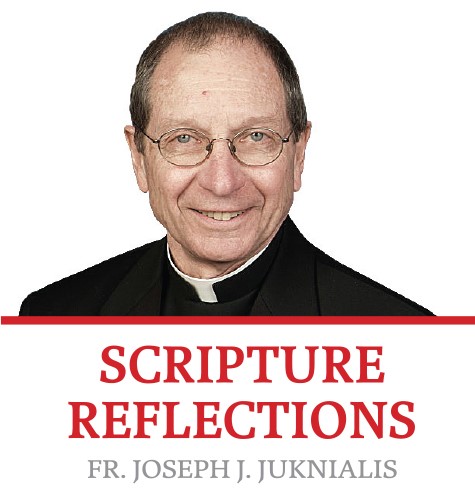Scripture Readings, Sept. 25, 2022
Sunday, Sept. 25, 2022
Twenty-Sixth Sunday in Ordinary Time
Amos 6:1, 4-7
1 Timothy 6:11-16
Luke 16:19-31
Once upon a time, a friend and I owned an aluminum canoe. On a summer day, we’d tie the canoe atop our car and drive to a boat launch on the Rock River just west of Oconomowoc. We’d bring a small charcoal grill, some hamburgers and a bottle of wine, and then begin paddling upstream for a half hour or 45 minutes. Then we’d light the grill in the bottom of the canoe, pop on some hamburgers, open the bottle of wine and begin drifting back amid the heavily wooded shoreline. The drifting ratio in those days was 4:1 — four times as long to drift back as it was to paddle upstream. It was a delightful way to spend a summer afternoon — two friends adrift on the river of life.
Not all drifting, however, is so pleasant and aimless. The Gospel this week is the story of a rich man who drifted into indifference, seemingly unaware of what he was becoming. The story recounts how he dressed in purple and fine linen garments, and dined sumptuously each day. All while lying at his door was a poor man named Lazarus, hungry and dressed with sores. Both die. Lazarus finds himself in the bosom of Abraham and the rich man in torment in the netherworld, finally aware of where his life’s journey has taken him.
The real sadness is that it’s possible for us as well to drift off into meaningless oblivion without any realization, an empty existence of loveless loneliness more painful than any imagined hellfire. Surprisingly, we are sent there not by God but as the result of our own unconscious drift. Whether or not we intend it or know what we’re doing seems not to make a twiddle of difference.
Benjamin Storey and Jenna Silber Storey are college professors. In counseling students, they became aware of how often students are driven by forces beyond their awareness. Pressures from friends and family and often the educational institution itself provide a myriad of opportunities that can drive students toward lifestyles and goals they never consciously choose. In a New York Times guest essay, they described a course they’d created, entitled “The Art of Choosing What to Do with Your Life.”
The purpose of the course, they say, is to offer students some conscious choices about their future by looking at their motivations and goals. Within the course, they share how St. Thomas Aquinas “suggests that the ultimate objects of human longing can be sorted into only eight enduring categories.” If we want to understand where we’re headed, we should ask ourselves these questions: Am I interested in this opportunity because it leads to wealth? Or am I aiming at praise and admiration? Do I want enduring glory? Or power — to “make an impact”? Is my goal to maximize my pleasures? Do I seek health? Do I seek something “good for the soul,” such as knowledge or virtue? Or is my ultimate longing to come face-to-face with the divine?
It isn’t only students who would find it valuable to consider the direction of their choices and their lives but also all of us. Given the fact that all of us can drift into lives numbed by the demands that surround us, regular prayerful reflection on who we are becoming ultimately proves to be worthwhile.
Mahatma Gandhi, the revered spiritual leader of India, once listed for his son what he called the Seven Deadly Sins. When someone begins to succumb to their lure, the result all too often becomes the gradual dehumanizing drift into the existence which the rich man of the parable found himself. When a society begins to tolerate them and eventually even endorse them, the result is all the more tragic. It marks the drift into oblivion of that people and culture.
These are Gandhi’s Seven Deadly Sins. We might only begin to imagine the world to which they might lead:
- Wealth without work: the loss of concern for the common good, uninterested in building a better world.
- Pleasure without conscience: a superficiality that numbs us to human pain and suffering.
- Knowledge without character: the loss of wisdom.
- Commerce without morality: the glorification of greed.
- Science without humanity: unbridled technology leading to little or no value for human life.
- Worship without sacrifice: the loss of any purpose or vision by which we live.
- Politics without principle: the loss of integrity and truth, ultimately leading to chaos and violence.
The world we create for ourselves we create for one another. Whether we journey to the bosom of Abraham or to the netherworld, it is something we do together and not by ourselves.
REFLECTION QUESTIONS
Which of the categories suggested by St. Thomas Aquinas play the strongest motivation in your life’s decision making?
When has your life drifted into something not of your choosing or awareness?

